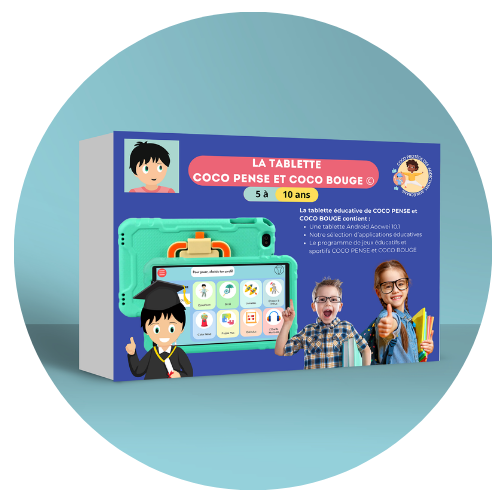Attention Deficit Hyperactivity Disorder (ADHD) is a neurodevelopmental disorder that affects millions of individuals worldwide, manifesting primarily through challenges in maintaining focus, regulating impulses, and managing hyperactivity. For many of us, understanding ADHD requires delving into its multifaceted nature, as it can present differently across various age groups and individuals. Children with ADHD may struggle to sit still in class, often finding their minds wandering to daydreams or distractions, while adults may experience difficulties in organizing tasks or completing projects.
This lack of focus can lead to significant challenges in academic, professional, and social settings, creating a cycle of frustration and low self-esteem for those affected. The impact of ADHD extends beyond mere attention issues; it can also influence emotional regulation and social interactions. Individuals with ADHD may find themselves overwhelmed by their surroundings, leading to heightened anxiety or frustration when they cannot concentrate.
This can result in a negative feedback loop where the inability to focus exacerbates feelings of inadequacy, further impairing their ability to engage with tasks or relationships. As we explore the implications of ADHD, it becomes clear that addressing these challenges requires a comprehensive approach that considers both cognitive and emotional support systems.
The Role of Cognitive Apps in Supporting Individuals with ADHD
In recent years, cognitive apps have emerged as valuable tools for supporting individuals with ADHD, offering innovative ways to enhance focus and attention through engaging and interactive experiences. These applications are designed to provide users with targeted exercises that stimulate cognitive functions such as memory, problem-solving, and attention control. By incorporating gamified elements, these apps can transform the often daunting task of improving focus into an enjoyable activity that encourages regular practice.
For many of us, the appeal of technology lies in its ability to provide immediate feedback and track progress, making it easier to stay motivated and engaged. Moreover, cognitive apps can be tailored to meet the unique needs of individuals with ADHD, allowing for personalized learning experiences that adapt to their specific challenges. For instance, our COCO THINKS and COCO MOVES apps are designed specifically for children with ADHD or autism, offering a range of educational games that promote cognitive development while keeping users entertained.
By utilizing these apps, we can create a supportive environment that fosters growth and development, helping individuals with ADHD build essential skills in a way that feels less like a chore and more like play.
How Speech Therapists Can Utilize Cognitive Apps to Improve Focus and Attention

Speech therapists play a crucial role in supporting individuals with ADHD by helping them develop communication skills and strategies for managing their attention challenges. By integrating cognitive apps into their practice, we can enhance the effectiveness of traditional speech therapy techniques. These apps provide an interactive platform for practicing language skills while simultaneously addressing attention deficits.
For example, therapists can use our COCO THINKS app to engage children in activities that require them to follow instructions, listen attentively, and respond appropriately—all essential components of effective communication. In addition to improving language skills, cognitive apps can also serve as valuable tools for building self-regulation strategies. By incorporating activities that require users to pause, reflect, and make decisions, we can help individuals with ADHD develop greater awareness of their impulses and reactions.
This process not only enhances their ability to focus during therapy sessions but also equips them with skills they can apply in everyday situations. As we embrace technology in our practice, we open up new avenues for fostering growth and resilience in our clients.
Selecting the Right Cognitive Apps for ADHD Clients
When it comes to selecting cognitive apps for clients with ADHD, it is essential for us to consider several factors to ensure that the chosen applications align with their specific needs and preferences. First and foremost, we should evaluate the app’s content and objectives—does it target the cognitive skills we aim to improve? For instance, our COCO THINKS app focuses on enhancing attention and problem-solving abilities through engaging games tailored for children with ADHD.
By choosing apps that align with our therapeutic goals, we can maximize the benefits for our clients. Another critical aspect to consider is the user interface and overall experience of the app. Cognitive apps should be intuitive and user-friendly, allowing clients to navigate easily without becoming frustrated or overwhelmed.
Additionally, we should look for apps that offer customizable settings, enabling us to adjust difficulty levels or select specific activities based on each client’s unique strengths and challenges. By carefully selecting the right cognitive apps, we can create a supportive environment that fosters engagement and progress in our clients’ therapeutic journeys.
Implementing Cognitive Apps in Speech Therapy Sessions
Integrating cognitive apps into speech therapy sessions requires thoughtful planning and execution on our part as therapists. We must first establish clear objectives for each session, identifying which cognitive skills we aim to target through app usage. For example, if our goal is to improve a child’s listening skills, we might choose activities within our COCO THINKS app that emphasize following verbal instructions or responding to auditory prompts.
By aligning app activities with our therapeutic goals, we can create a cohesive and focused session that maximizes the benefits of both traditional techniques and technology. Furthermore, it is essential for us to actively engage with our clients while they use cognitive apps during therapy sessions. This involvement allows us to provide guidance, encouragement, and immediate feedback as they navigate the activities.
By fostering a collaborative atmosphere where clients feel supported and motivated, we can enhance their overall experience and promote a sense of accomplishment as they progress through the app’s challenges. As we implement cognitive apps into our practice, we must remain flexible and responsive to our clients’ needs, adjusting our approach as necessary to ensure optimal outcomes.
Monitoring Progress and Adjusting Cognitive App Usage as Needed

Collaborating with Other Professionals to Support ADHD Clients
Collaboration among professionals is essential when supporting individuals with ADHD, as it allows us to create a comprehensive support network that addresses various aspects of their lives. As speech therapists, we can work alongside educators, psychologists, occupational therapists, and parents to develop cohesive strategies that promote success both in therapy sessions and in everyday environments. By sharing insights about our clients’ strengths and challenges across different settings, we can create a more holistic approach that enhances their overall well-being.
Incorporating cognitive apps into this collaborative framework can further strengthen our efforts. For instance, educators can utilize similar apps in the classroom setting to reinforce skills learned during therapy sessions. By aligning our approaches and sharing resources like our COCO THINKS app among professionals involved in a client’s care, we can create a consistent experience that fosters growth across all areas of their lives.
This collaborative effort not only benefits our clients but also empowers families by providing them with tools and strategies they can implement at home.
The Future of Cognitive Apps in ADHD Treatment and Speech Therapy
As technology continues to evolve at an unprecedented pace, the future of cognitive apps in ADHD treatment and speech therapy holds immense potential for enhancing therapeutic practices. We envision a landscape where these applications become increasingly sophisticated, incorporating artificial intelligence and machine learning algorithms that adapt to individual users’ needs in real-time. This level of personalization could revolutionize how we approach therapy by providing tailored experiences that respond dynamically to each client’s progress.
Moreover, as research continues to uncover new insights into ADHD and its treatment modalities, we anticipate the development of even more targeted cognitive apps designed specifically for various age groups and needs within the ADHD spectrum. By staying informed about emerging trends and advancements in technology, we can ensure that our practice remains at the forefront of innovation in supporting individuals with ADHD. Ultimately, the integration of cognitive apps into speech therapy represents a promising avenue for enhancing focus and attention while fostering meaningful connections between therapists and clients on their journey toward growth and success.
If you’re interested in exploring how cognitive apps can aid in improving focus and attention, particularly in the context of ADHD, you might find the article “10 exercices pour lier votre entraînement cérébral avec votre quotidien” insightful. This article discusses various brain training exercises that can be seamlessly integrated into daily routines, potentially benefiting speech therapists working with ADHD patients. To delve deeper into these practical exercises and understand how they can be applied to enhance cognitive functions, you can read the full article here.




